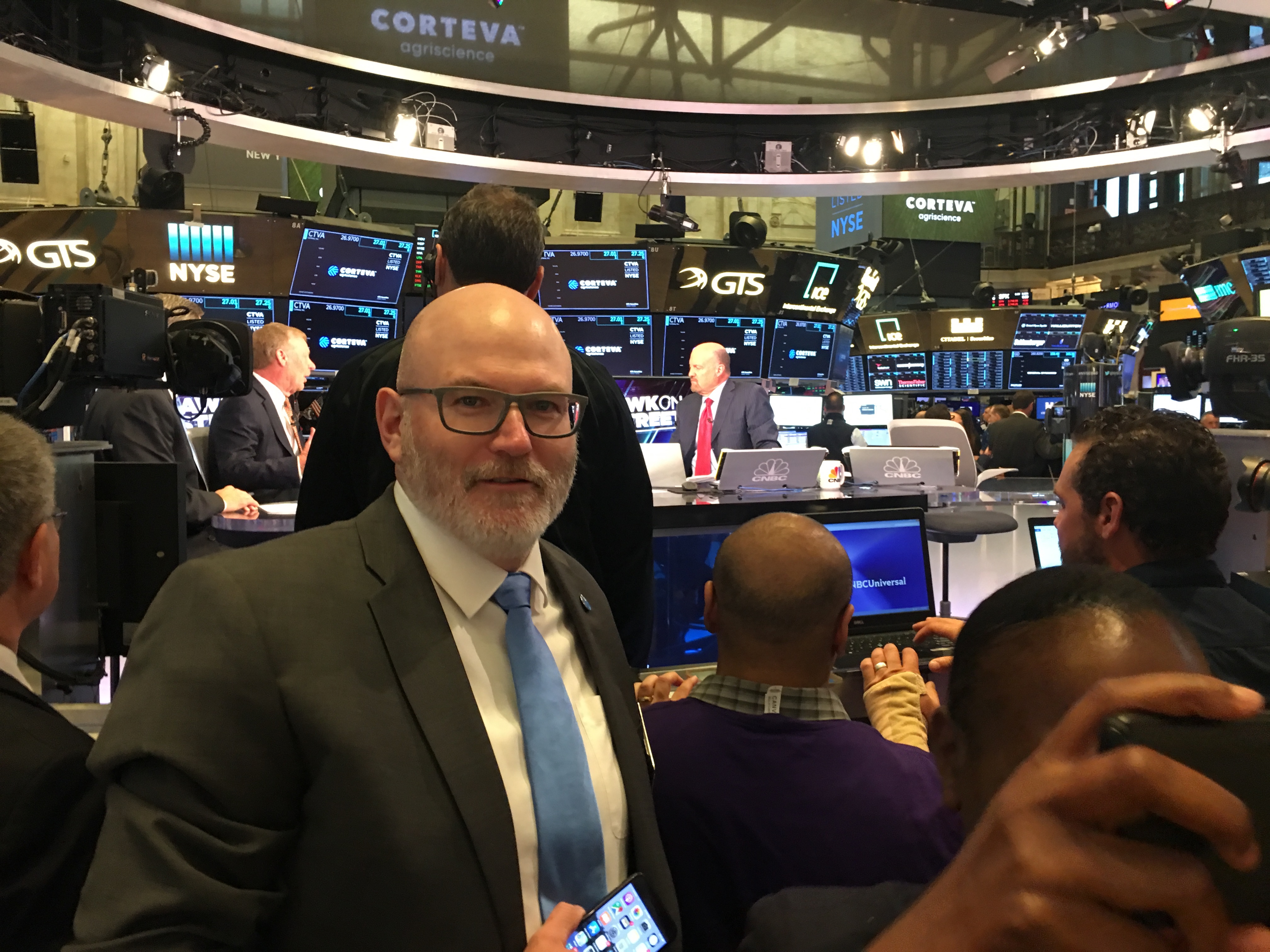It was the first day the company’s stock was publicly traded (under its ticker symbol CTVA), culminating from more than a year of flat-out, full-speed-ahead planning and preparation by virtually everyone in this 21,000-employee organization.
Corteva invited leading producer clients such as Saskatchewan’s Kevin Hruska, along with agricultural and business journalists from around the world (including three of us from Canada) to New York. There, we had a chance to hear the company’s story, ask questions about the company’s approach, and tell readers, listeners and viewers why Monday was truly a pivotal day in global agriculture, agri-business and consumer understanding.
To begin with, the New York Stock Exchange is the most powerful trading entity in the world. You don’t get to trade shares there unless you have the chops to do so. With a presence in 130-plus countries and net sales of $14 billion last year, Corteva enters the ring as a heavyweight, strong enough to be among the world’s biggest 500 companies.
And with that kind of capital, Corteva can make things happen. It lays claim to what it calls “a robust pipeline of active chemistry and technologies,” which in real terms means it’s introducing 21 new products globally in the next five years.
Bryce Eger, president of Corteva’s Canada operation, says nine of these products will have an effect in our country.

Bryce Eger
This news is welcome for producers. Through the years, they have been frustrated by slow growth in new products and chemistries across the entire sector, while development costs grew and huge changes in corporate structure and ownership occurred.
As well, through its acquisitions, Corteva represents trusted long-established brands such as Pioneer, Granular and Brevant seeds. And Corteva is making a huge push in helping develop and synthesize emerging digital technologies.
That work should mean means less waste, less pressure on the environment and greater opportunities for sustainability.
All these elements add up to helping farmers stay profitable while keeping their part of the cost of food in check. The rising cost of food is consumers’ biggest concern, as research from the Canadian Centre for Food Integrity has shown.
To me, one of Corteva’s most noteworthy new chapters is its commitment to consumers. The company understands that consumers are the ultimate customers of both it and of Canadian farmers, who’ve reached out to Corteva to ask for help telling the big story about agriculture in this country. The story is one about sustainability, safety and affordability but it is not well understood.
“We are committed to being transparent, to sharing information and knowledge and dispelling inaccuracies,” says Jim Collins, the company’s CEO. In fact, Corteva’s mission statement clearly lays out this imperative, noting it promises to “enrich the lives of those who produce and those who consume.”
How this mission manifests itself remains to be seen. But the gap in understanding for Corteva (and other companies) to help fill is immense and getting bigger all the time. Corteva has the ways and means to help advance agriculture, its perception and its understanding among consumers. What an incredible opportunity.
Unfortunately, the timing of this new effort by Corteva is tough. A long-term approach to almost anything in agriculture this spring takes a backseat to the huge challenges facing producers as a result of poor planting conditions. That story is the immediate one that consumers need to hear in order to deepen their understanding of agriculture.
When conditions improve, consumers will be back to asking as many questions as ever about GMOs and technology, and looking for the kinds of answers Corteva vows to provide.